As I believe I have mentioned from time to time, I’ve been reading a lot of Marvel Comics from the 1960s. The Ultimate series of Marvel Comics (a reimagining of the best-known characters from that period as though they had never been created and only appeared in the last 5 years or so instead) is not, alas, on DVD. However, I can find large swathes of the serieses in graphic novel form at my local used bookstore, and hey, why not? I’ve read enough of the original titles to know that I like the characters and the world, and enough to catch at least a substantial number of the references. Plus, I could conceivably catch up on this some day and read it sort of live, which is something that will never happen with the regular Marvel universe and its 45 years of bloat. That’s pretty cool, I guess.
So, anyway, The Fantastic provides the origin story and first major enemy faced by the Fantastic Four, who you’ve possibly heard of before, here if nowhere else. In this version of the story, the team is formed largely of precocious students who have been gathered together at a magnet school with government funding to invent the future, and the accident that provides their powers is the result of a teleportation experiment rather than flying through cosmic rays in space. In fact, my one complaint about the story is that the ‘What caused this?’ subplot was left unresolved in an unsatisfying way. I’m assuming they’ll make up for it by continuing to search for answers in future volumes. But the problems and personalities are spot on, the Moleman is far better realized than he ever was in the original comics (at least as far forward as I’ve read), the in-jokes were occasionally hysterical, and the art…
Well, I know it’s probably heresy, but I’m a lot more fond of the current art than the original stuff, and for a couple of reasons. The really heretical part is that I’m just not that big a fan of Jack Kirby. His backgrounds are great, yes, but his people have always left me cold. The other part is that the big, full-page art is very nice. It admittedly slows the story way down, explaining why what took FF #1 in 1962 about 20 pages to tell took the modern people 100 or more; but I don’t mind that the story slows down a bit, as continuity between issues is far tighter even than it was then. (And one of my most consistent praises of old era Marvel is how continuity-minded they were, and how high above my expectations the writing has been as a result.)
My point in all of this, I guess, is that I certainly liked what they’ve done with the reboot, and anticipate liking the other Ultimate titles as well. But since in a roundabout way I’ve been reviewing the old comics and the reboot concept more than this particular story, it’s probably fair to say that any future Ultimate reviews will be shorter than this. I mean, if that’s the kind of thing that worries you. (Which it probably would me; it’s a short graphic novel in the scheme of things, and not chock full of symbolism and enigma like most of the non-superhero comics I tend to read more often.)
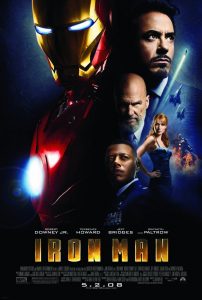 Going to a sneak preview is a thing that… well, okay, I’ve done it
Going to a sneak preview is a thing that… well, okay, I’ve done it 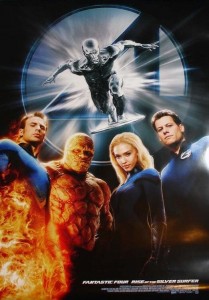
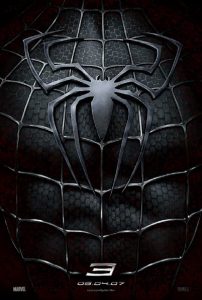 Well, it’s summer now. There is an extent to which I feel like summer comes too soon, since there are no longer any good movies left by August. Nevertheless, I can only observe the status of these things, not correct them. I am like a groundhog for movies! (Except my job’s easier; summer never doesn’t come.) My point, of course, is this: midnight showing of
Well, it’s summer now. There is an extent to which I feel like summer comes too soon, since there are no longer any good movies left by August. Nevertheless, I can only observe the status of these things, not correct them. I am like a groundhog for movies! (Except my job’s easier; summer never doesn’t come.) My point, of course, is this: midnight showing of 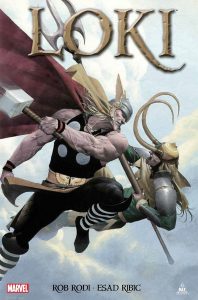 Although I’ve done a little bit of delving into old-school Spider-Man and X-Men, for the most part I’m only barely aware of the Marvel canon, outside what movies have told me. Of course, the comics have lots of advertising and in-story references to the other Marvel characters, so I’m getting a vague idea of what the universe looks like, thanks to the aforementioned excavations. So sure, I know that Thor spent some time as an Avenger (whatever that is), and that his comics frequently refer to Norse legend, which seems only right. But when I got the Marvel-branded book
Although I’ve done a little bit of delving into old-school Spider-Man and X-Men, for the most part I’m only barely aware of the Marvel canon, outside what movies have told me. Of course, the comics have lots of advertising and in-story references to the other Marvel characters, so I’m getting a vague idea of what the universe looks like, thanks to the aforementioned excavations. So sure, I know that Thor spent some time as an Avenger (whatever that is), and that his comics frequently refer to Norse legend, which seems only right. But when I got the Marvel-branded book 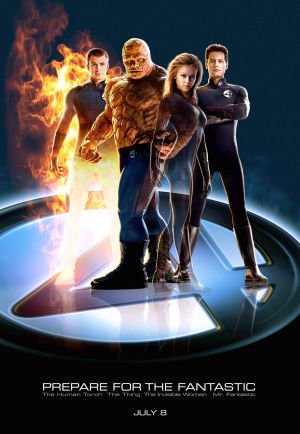
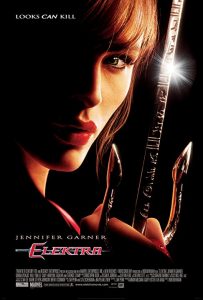 The thing about being sick is that you kind of look forward to it. An excuse to not have to go to school, say. Or to work, which is even better, because the concept has been institutionalized. There are entire “sick days”, which are for the sole purpose of saying, ‘no thanks, I’m not going to work today, because I’m taking a sick day. It’s because I’m sick!’
The thing about being sick is that you kind of look forward to it. An excuse to not have to go to school, say. Or to work, which is even better, because the concept has been institutionalized. There are entire “sick days”, which are for the sole purpose of saying, ‘no thanks, I’m not going to work today, because I’m taking a sick day. It’s because I’m sick!’